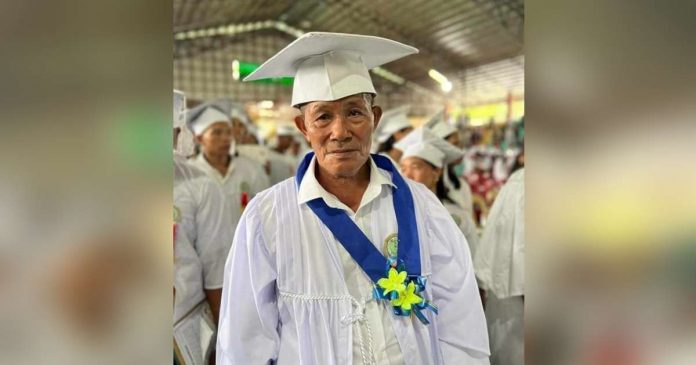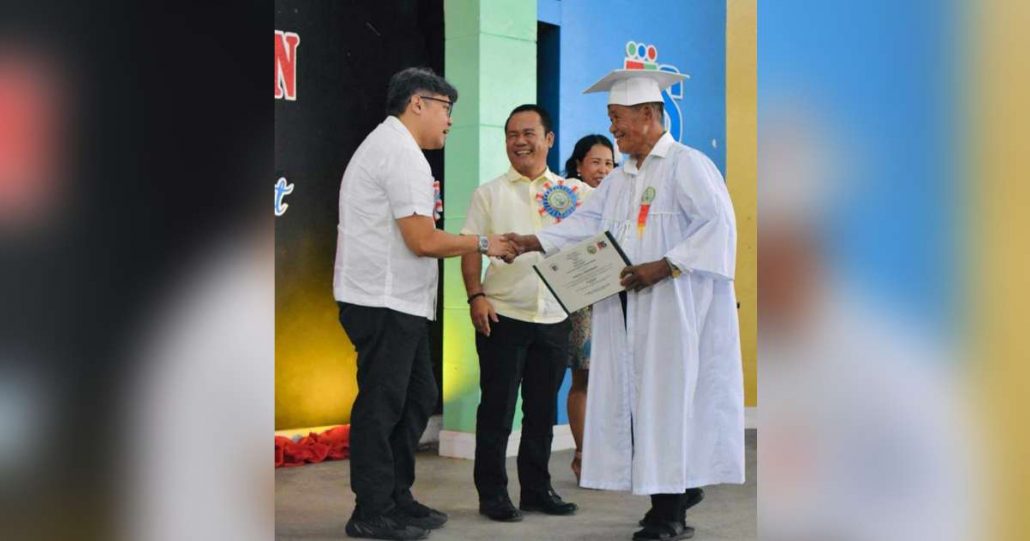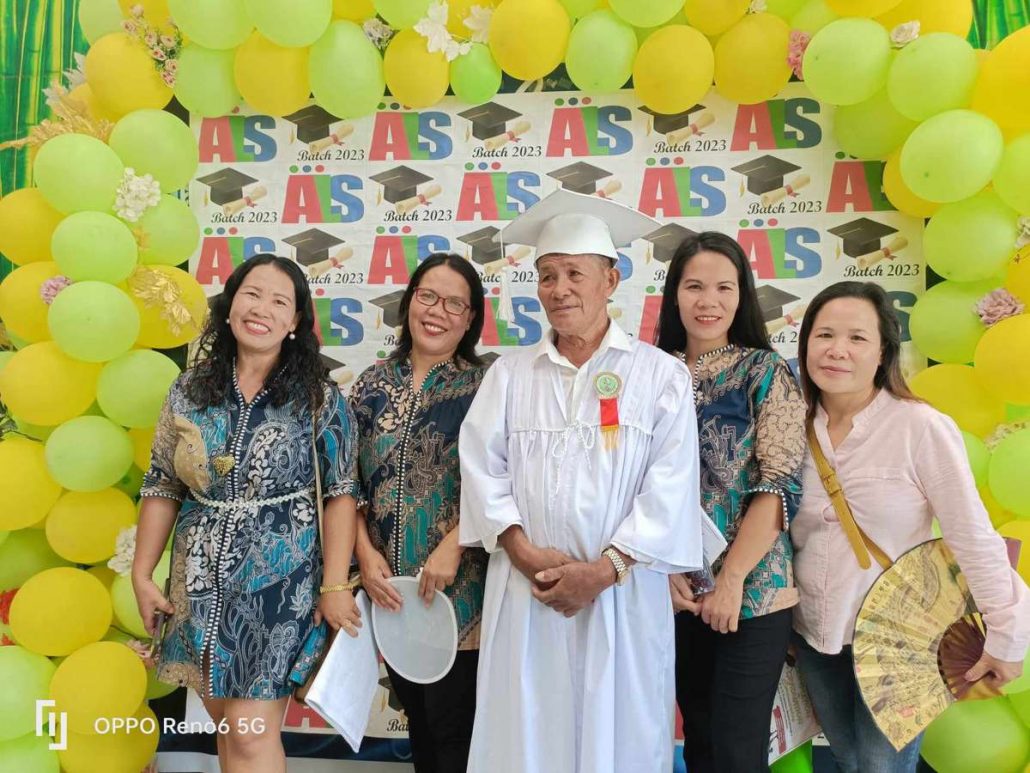
“WALA sang imposible kung magpursige. Kung mahimu pa lang, kung may interest kamo magtuon, magtuon kamo para magdugang man ang nabal-an kag talento mo kang una,“
With perseverance, nothing is impossible, said 73-year-old Angelito Esperidion Sr., who recently graduated elementary school through the Alternative Learning System (ALS).

Tatay Angelito of Barangay Balabago, Alimodian, Iloilo, has nine children, all with professions: midwife, three teachers, chief engineer, computer programmer, and two seafarers.
Aside from managing his farm, tatay’s children could provide for him.

But his desire to march on the stage did not waver.
Without a second thought, Tatay Angelito said yes after his daughter, Ma’am Araceli Esperidion-Aldamar, an ALS teacher, encouraged him.
“Nalipay man ako nga sa amo ko run dya nga edad, makasaka pa ako sa stage,” said Tatay Angelito, who graduated on Aug. 14, 2023.
Before ALS, Tatay Angelito was only able to study until Grade 4.
ALS is a parallel learning system that provides opportunities for out-of-school youth and adult (OSYA) learners to develop basic and functional literacy skills and to access equivalent pathways to complete basic education.
Through blended learning, the septuagenarian was able to juggle his time well.
“Kon aga sa uma ako kag kon magsakit na ang butlak kang adlaw, naga-uli ako sa balay. Amo dun ran pag-review ko sang akon modules,” he said.
Not only his literacy but, more importantly, his comprehension was honed.
Tatay Angelito strives in his studies to make his children, who have been supportive throughout his educational milestones, proud.
His story is a reminder that education, regardless of age, is an attainable right.
Held every September of each year, National Literacy Month aims to remind the public of the importance of literacy as a matter of dignity and human rights and advance the literacy agenda toward a more literate and sustainable society.
Currently, Tatay Angelito will continue his secondary education as long as he can.
For teacher Araceli, being by their father’s side is nothing compared to their parents’ efforts to raise them.
“Kon sang una si tatay kag nanay ang nagapa-eskwela kanamon, subong kami naman nga mag-utod ang nagabulig para maka-eskwela si tatay,” she said.
Their parents were supposed to be ALS classmates in 2021, but her mother died, prompting Tatay Angelito to halt his education temporarily.
When reviewing the modules, all the siblings lend a hand.
“Nalipay kami kay ti natuman ni tatay ang handum nga maka-graduate sa elementary kag nagapasalamat man kami kana kay ti kon ano to ginahambal namon kana, ginapati kag ginasunod ya man, naga-untat gid sang arado para mag-review tana,” teacher Araceli added.
It is learned that Tatay Angelito was among the eldest, if not the most, among ALS graduates in the second district of Iloilo at this year’s commencement held at Leon town.
“Daw indi man mabakal ka kwarta ang yuhom kang mal-an pagsaka na sa stage,” recalled teacher Araceli.
Because of this, teacher Araceli encourages other parents or the elderly who want to finish their education because it is never too late.
All they have to do is visit a public school and inquire about how to enroll in ALS, which is free.
As a viable alternative to the existing formal education system, ALS encompasses non-formal and informal knowledge and skills sources. As a “second chance” education program, it aims to empower OSYA learners to continue learning in a manner, time and place suitable to their preferences and circumstances and to achieve their goals of improving their quality of life and becoming productive contributors to society.
The ALS Program uses a contextualized non-formal curriculum that is substantially aligned with the K–12 Curriculum for Basic Education of the formal school system, but it is not the mirror image of the formal school curriculum. It is aligned but not identical. This takes into account the prior learning of its learners and reflects the indicators of functional literacy into six interrelated learning strands./PN







